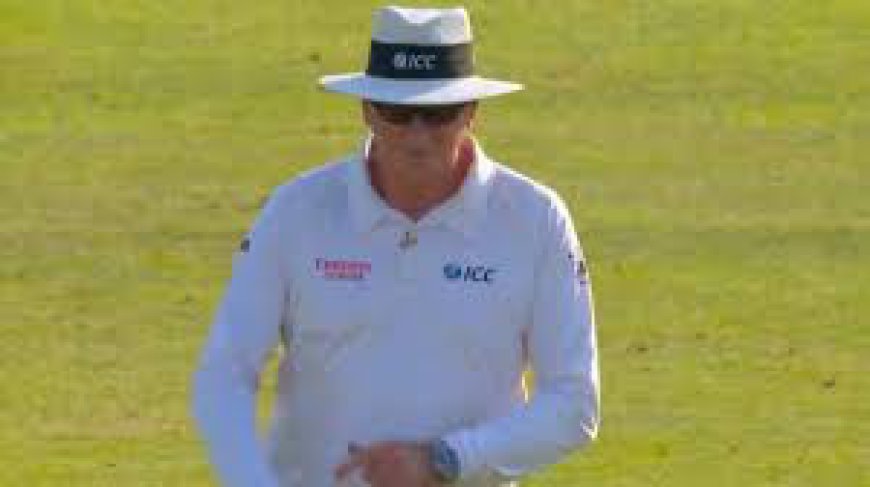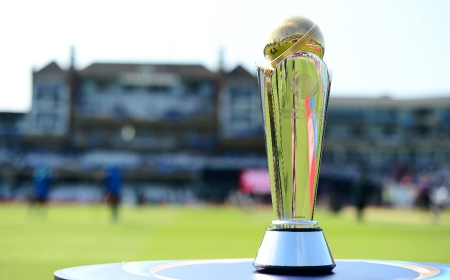Unfair Play? Unmasking Racism in Cricket Umpiring Decisions

Cricket has often been celebrated as a gentleman’s game, a sport that unites countries across continents, races, and cultures. But behind the lush green fields and stadium applause lies a darker, often unspoken truth — racial bias in umpiring, a systemic issue that continues to affect players from non-Western countries.
One name that has repeatedly surfaced in this context is Paul Riffel, the former Australian cricketer turned umpire. Several of his decisions over the years have sparked accusations of racial discrimination, particularly during matches involving subcontinental teams.
The Paul Riffel Controversies
In the 2023 Border-Gavaskar Trophy, Paul Riffel came under fire for his questionable LBW decisions against Indian batsmen, including Cheteshwar Pujara and Ravindra Jadeja. Critics pointed out a clear pattern: marginal calls were frequently ruled against Indian players while similar situations for Australian players were consistently given the benefit of the doubt. While DRS corrected some decisions, the original on-field bias was hard to ignore.
In another match involving Pakistan, Riffel gave Mohammad Rizwan out LBW on a ball that pitched well outside leg stump — a ruling later overturned, but not before sparking anger on social media and in cricket forums.
Today’s India vs England Test Match (July 14, 2025): A Pattern Repeated
Fans and commentators alike were stunned when Paul Riffel made not one, but three shocking on-field calls against Indian batters during today’s crucial session at Lord’s:
-
Case 1: Yashasvi Jaiswal was ruled out LBW early in his innings on a ball clearly missing leg stump. DRS saved him — but the instinctive on-field decision again raised eyebrows.
-
Case 2: Rishabh Pant was given out caught behind on a feather that didn’t exist. UltraEdge showed no spike, but the on-field decision went against him until overturned.
-
Case 3: Ravindra Jadeja’s LBW appeal was a repeat of the same script — a poor call reversed by DRS.
Despite the review system bailing India out, the pattern is unmistakable: marginal calls, almost always ruled against Indian batters, while England enjoyed the benefit of doubt.
Social media exploded with fans calling Riffel out for “trigger-happy umpiring against Indians,” while others labeled it “subtle racism hiding under the guise of poor judgment.”
Players and analysts have begun to ask: Is this just poor umpiring, or something more systemic?
A Pattern Across the Board
Paul Riffel is not alone. Several umpires — predominantly from England, Australia, and New Zealand — have been repeatedly accused of racial bias, especially against Asian and Caribbean teams.
1. Steve Bucknor (West Indies):
While a West Indian himself, Bucknor was often criticized for his biased calls against India in the early 2000s. During the 2003-04 Australia tour, he made multiple questionable decisions against Sachin Tendulkar, Rahul Dravid, and VVS Laxman, many of which were later proven wrong.
2. Darrell Hair (Australia):
Perhaps the most infamous case — Hair accused Pakistani bowler Shoaib Akhtar of chucking and later triggered an international scandal during the 2006 Oval Test, when he penalized Pakistan for alleged ball tampering without clear evidence. The match was forfeited, and it left a permanent scar on relations between Pakistan and ICC officiating standards. His actions were widely labeled prejudiced and arrogant.
3. Rod Tucker (Australia):
He’s another umpire whose decisions have disproportionately gone against Asian sides. In multiple India-England and India-Australia series, Tucker’s questionable caught-behind and LBW calls faced heavy scrutiny. Even with DRS available, his initial instincts almost always went against non-Anglo teams.
Why This Matters
Cricket’s governance is still deeply Western. Despite India, Pakistan, Bangladesh, and Sri Lanka making up a massive portion of the sport’s viewership and talent pool, umpiring and decision-making remain skewed, both literally and figuratively. The lack of diversity among elite umpires exacerbates the problem. As of 2025, the ICC Elite Panel is still dominated by white male umpires.
In a game that heavily leans on “the spirit of cricket,” unconscious (or conscious) racial bias undermines that very spirit. When umpires — who hold massive power on the field — consistently rule unfairly against players of color, the integrity of the sport is called into question.
What Needs to Change?
-
Diversity in Umpiring: More representation from Asia, Africa, and the Caribbean in the ICC Elite Panel.
-
Transparent Accountability: Umpires should be publicly held accountable for repeated errors, especially those involving racial patterns.
-
Bias Training: Just as other global industries invest in unconscious bias training, so should the ICC for its umpires.
Racism in cricket doesn’t always come in the form of slurs or obvious gestures — sometimes, it hides in subtle decisions, questionable rulings, and patterns of disadvantage that affect entire nations. Until the ICC and cricketing boards address these biases head-on, the sport risks losing not just credibility — but also the very fans and players who give it life.
This is not just about Paul Riffel. It’s about a system that still plays favorites — and it’s time cricket grew up and played fair.
Reported by Khichdi News Network
What's Your Reaction?
 Like
0
Like
0
 Dislike
0
Dislike
0
 Love
0
Love
0
 Funny
0
Funny
0
 Angry
0
Angry
0
 Sad
0
Sad
0
 Wow
0
Wow
0





































































